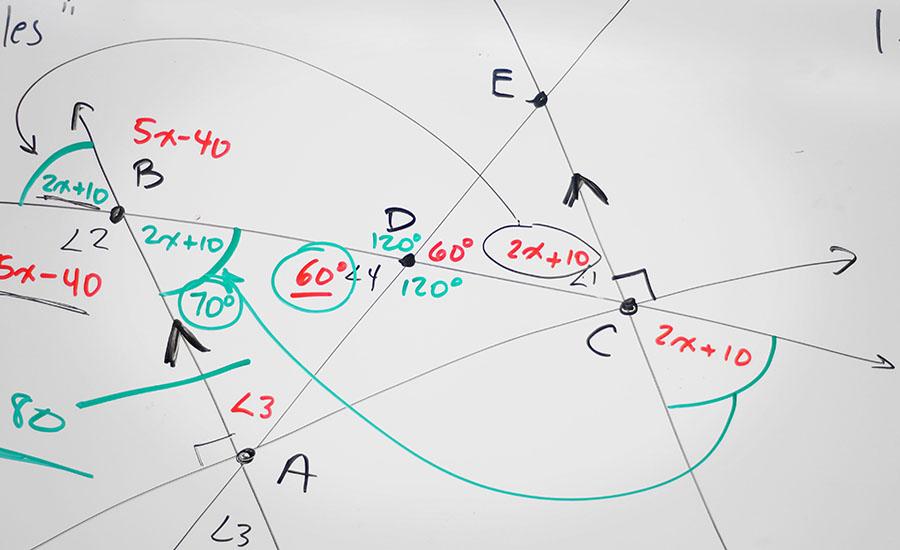Grades:
4th Grade
Students are experimenting on their own to find out which materials would create the best water filter, after reading The Water Princess and discussing water scarcity. This engaging lesson combines
Grades:
10th Grade
The lesson plan is about energy transfer in an ecosystem using beads. Students will participate in an interactive simulation about energy transfer. They will collect data and ultimately create a class
Grades:
9th Grade, 10th Grade, 11th Grade
In this lesson, students will be introduced to the concept of homeostasis with online research and then investigate how feedback mechanisms are used to maintain homeostasis during exercise during an
Grades:
2nd Grade
This lesson is to introduce students to coding using EdScratch and Edison Robots. Students use LEGOs to build a house for grandma and figure out a way to keep her safe.
Grades:
1st Grade
What is the life cycle of a butterfly? How do butterflies use their wings? Answers to these questions and more are in this engaging lesson. The challenge for the students is to create a butterfly
Featured
Not a Stick!
Grades:
Kindergarten
Students will participate in an engineering challenge or STEM activity that connects to a read aloud. They will be able to ask questions, make observations, and gather information about a situation
Grades:
5th Grade, 6th Grade
In this lesson, students will collaborate and communicate effectively with peers to complete an engineering design challenge using the Engineering Design Process. Students will be using technology to
Grades:
6th Grade
In this engaging lesson, students create simple paper models of water sheds in class and explore hazards to waterways through an online interactive. They make connections between water stewardship and
Grades:
5th Grade
In this engaging lesson, students work together to design a water filtration system to separate pollutants from water. This lesson takes about 120 minutes to complete. Various resources are included!
Grades:
6th Grade
In this 1st lesson in a series of 3, students learn about the Great Pacific Garbage Patch. They create a model and write and defend a claim about humanity's ability to mitigate the problem. This
Grades:
8th Grade
Students will measure the height, diameter, and circumference of a tree in this engaging lesson. They will then determine a tree’s age by counting growth rings. Students will determine how rainfall
Grades:
8th Grade, 9th Grade, 10th Grade
In this lesson, students will be introduced to the concept of osmosis, then investigate how solutions of various salt concentrations influence the size of plant cells.
Grades:
2nd Grade
In this engaging lesson, students discover what a volcano is and what causes it to erupt. There is a literacy integration, video resources, and other helpful information included.
Grades:
6th Grade
In this lesson, students will collaborate to design and engineer a product to contain and clean up an oil spill while saving the affected wildlife. They will also accurately complete an itemized
Grades:
3rd Grade
Summary: This lesson is geared towards 3rd graders but can be modified for upper and lower grades. Throughout the next 4 lessons they will describe the role of pollinators and explain their effects
Grades:
8th Grade
In this lesson students will gather data about local tree diameters. They will then estimate the approximate age of trees. Students build connections between a tree’s growth and environmental factors
Grades:
5th Grade
In this creative lesson, students will create a simple machine to retrieve objects through a makeshift storm drain. There is a potential literacy integration and a focus on the engineering design
Grades:
6th Grade, 7th Grade, 8th Grade
This is an 8-lesson unit that is designed to be used together to learn about the health and diversity of your local watershed by placing leaf packs into a water source (natural or man-made ponds
Grades:
11th Grade, 12th Grade
This will be a 1 class period laboratory. It should take about 45-60 minutes. Students will be making a wet-mount slide of pollen that they collected or that was provided. They can look at prepared
Grades:
6th Grade, 7th Grade, 8th Grade
This is an 8-lesson unit that is designed to be used together to learn about the health and diversity of your local watershed by placing leaf packs into a water source (natural or man-made ponds
Grades:
3rd Grade
In this engaging lesson, students will create their own parade float using recyclable materials and code a parade route using Dash robots. Students will do this after hearing the story "Balloons over
Grades:
6th Grade, 7th Grade, 8th Grade
This is an 8-lesson unit that is designed to be used together to learn about the health and diversity of your local watershed by placing leaf packs into a water source (natural or man-made ponds
Grades:
3rd Grade
In this lesson, students will research a variety of habitats. They will then use their research to document what they learned using technology. This information will be used in future lessons to build
Grades:
6th Grade, 7th Grade, 8th Grade
In this hands-on lesson, students will consider what they think about several different closed systems. Then students will design and carry out investigations of living things to inform their closed
Featured Lesson Plans
Check out these notable lesson plans.

Grades:
4th Grade, 7th Grade, 9th Grade, 10th Grade, 11th Grade, 12th Grade
Students use Google Earth Timelapse to observe changes to glaciers over time before completing an investigation on the effects of melting sea ice and land ice on global sea level rise. This

Grades:
3rd Grade, 4th Grade, 5th Grade
This is the second lesson plan that goes with the series of four lesson plans for the book Song for a Whale by Lynne Kelly. This lesson focuses on vibrations, sounds, and music. The final project is

Featured
SNOW
Grades:
4th Grade
This lesson includes literacy, math, and art about snowflakes. Within math, students will dive into an analysis of angles within a common snowflake. Students will listen to an informational text about


